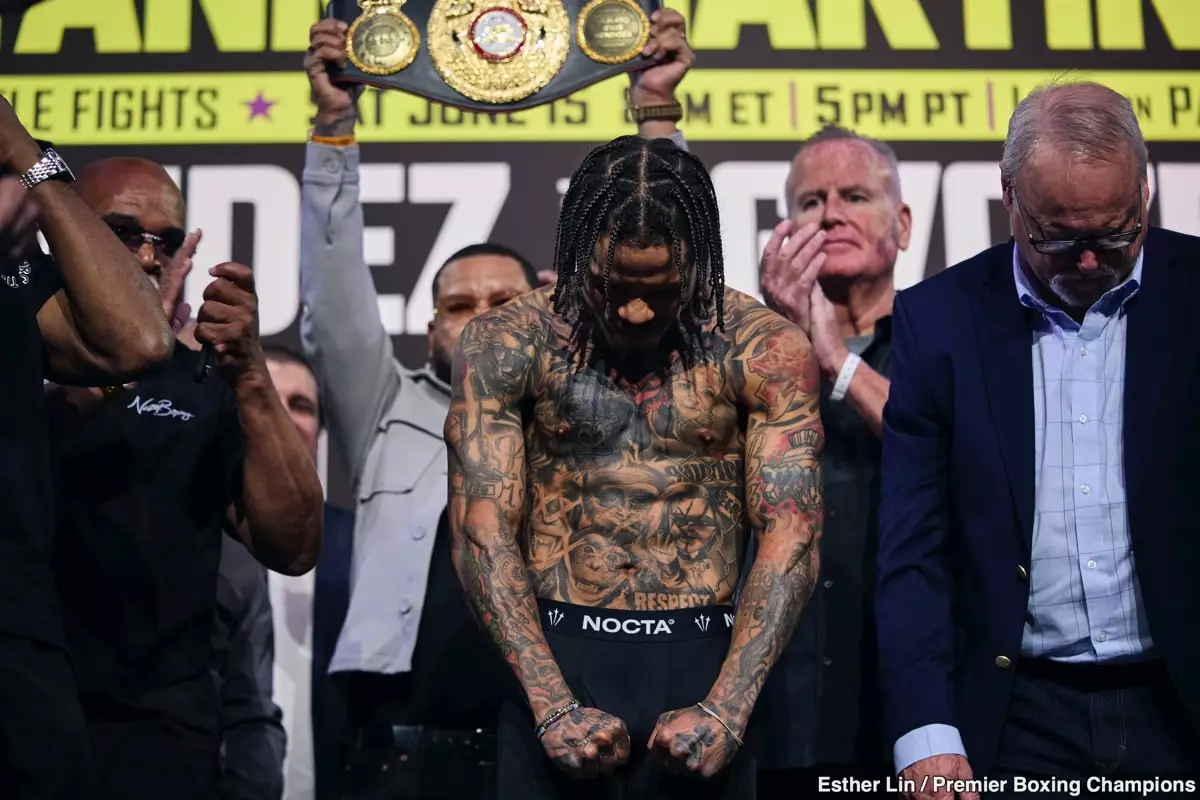In the world of professional boxing, matchmaking often ignites passionate debates among fans and pundits alike. Gervonta ‘Tank’ Davis, the reigning WBA lightweight champion, stands as a central figure in this ongoing discussion. His upcoming title defense against super featherweight Lamont Roach Jr. on December 14th in Houston has drawn significant scrutiny. Critics argue that this fight epitomizes a pattern of conservative matchmaking that has characterized Davis’s career, raising questions about his willingness to engage with higher-risk opponents in the lightweight division, where numerous formidable contenders await.
Fans and analysts have expressed disappointment over Davis’s choice to face Roach, a fighter with a record of 25 wins, 1 loss, and 1 draw, who, while accomplished with a pedigree as a seven-time national champion, struggled against more elite competition. This perceived preference for less competitive fights has catalyzed a discourse around Davis’s legacy and competitive spirit. Here, we delve into these concerns and explore the implications of his current trajectory.
The choice of Roach raises eyebrows, considering the available alternatives. Many notable contenders exist in the lightweight division, such as Andy Cruz, Keyshawn Davis, and Raymond Muratalla, all of whom are eager for high-profile bouts that could elevate their careers. Critics argue that Davis’s frequent selections from the super featherweight ranks indicate a reluctance to face the challenges presented by these stronger and more skilled fighters.
Coach Kenny Ellis has defended the decision, citing Roach’s skills and accomplishments. He emphasizes the fighter’s deep boxing pedigree, noting Roach’s toughness and impressive background. However, understanding the context is crucial; critics argue that Roach’s recent performances have not reflected the caliber typically associated with a world champion’s opponent. His close victory over Hector Luis Garcia and past struggles against fighters like Jamel Herring amplify concerns that Davis is opting for an easier route instead of taking calculated risks.
Kenny Ellis’s remarks reveal a certain defensiveness about the choice of Roach. While he acknowledges that Roach has historically lost tight bouts, he insists that the narrative surrounding the super featherweight’s skills is flawed. However, this defense raises a larger question: should Tank Davis be content with facing opponents who may not challenge him thoroughly? The fact that fighters turn down opportunities to face Davis, as Ellis suggests, also opens the question of whether Davis’s camp itself is actively avoiding potential perilous matchups.
By framing the upcoming fight as a mere step along Davis’s path and downplaying the importance of fighting elite contenders, Ellis appears to sidestep the growing skepticism regarding Davis’s place among the elite in boxing. Such a dismissive stance could imply an acceptance of mediocrity rather than an ardent pursuit of greatness, particularly in an era where fans expect champions to face the best available competition.
The debate surrounding Davis’s match choice isn’t just about one fight; it encapsulates the broader narrative of a fighter’s legacy. With each decision to engage in seemingly lower-risk matchups, the question arises as to how history will remember him. Will he be seen as a champion who strategically navigated his career, or one who avoided the biggest challenges?
Boxing is renowned for its ability to catapult champions to legendary status through striking victories against formidable foes. As Davis prepares to enter the ring against Roach, the boxing community holds its breath, wondering if this fight will further entrench Davis’s reputation or unfurl a narrative of unfulfilled potential. In a sport where legacy is forged in the heat of competition, the implications of this current matchmaking are profound.
As Davis gears up for his title defense, the optics of his chosen path serve as a call for introspection within the boxing community. Will he rise to the occasion and begin seeking bouts that will bolster his standing among the elite? A shift in strategy could not only enhance his reputation but also offer fans the thrilling matchups they crave. The clock is ticking for Gervonta Davis; it remains to be seen whether he will heed the call to embrace the challenges that lie ahead or continue on the path of least resistance. The narrative of boxing history is still being written, and the choices made today will echo in its pages.

